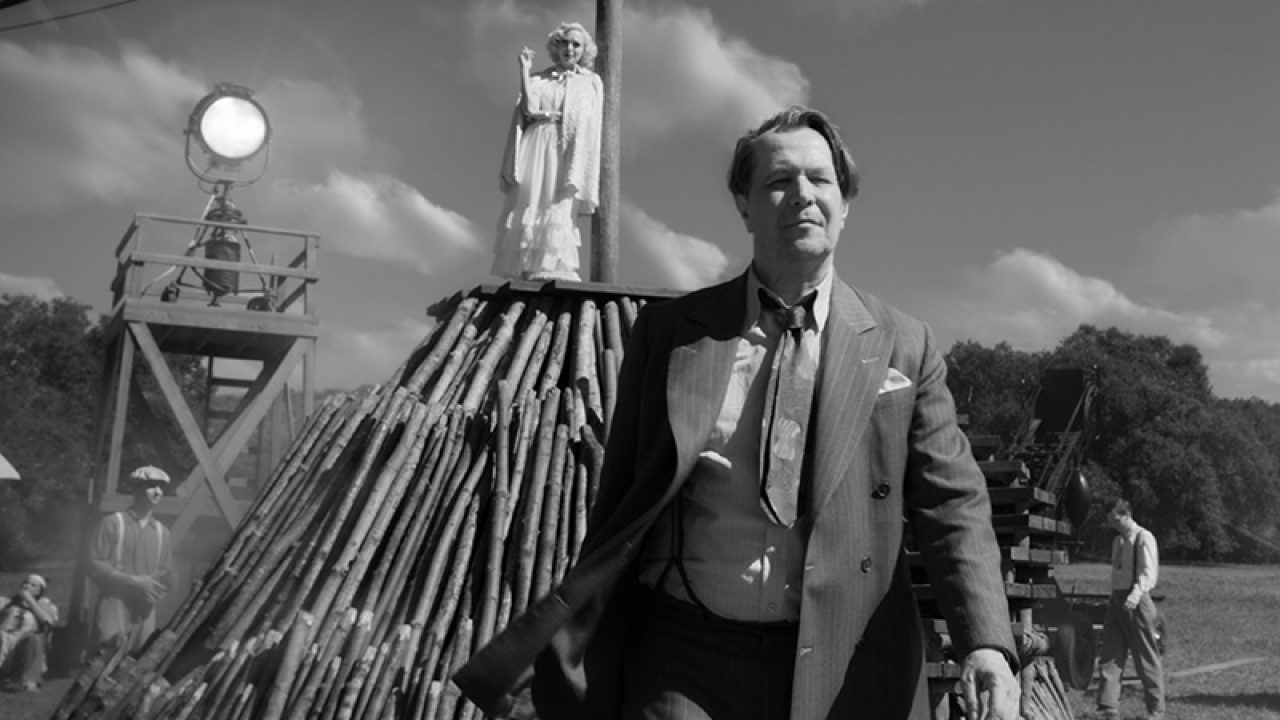GamesRadar+ Verdict
After 30 years of gestation, Mank emerges one of the great films on the machinations of Hollywood
Why you can trust GamesRadar+
"You cannot capture a man’s entire life in two hours. All you can hope for is to leave an impression of one." So says New Yorker critic turned playwright turned script doctor Herman J. Mankiewicz (Gary Oldman) – or Mank, as he’s known to friends, colleagues and venomous rivals – of his screenplay American, later to be retitled Citizen Kane. And just as Mankiewicz and Orson Welles most certainly achieved this objective with their rise-and-fall-and-so-much-more story of Charles Foster Kane, so too does this telling of how Mank co-wrote The Greatest Film Ever Made.
Directed by David Fincher from a script by his journalist father Jack, Mank, like Kane, utilises multiple flashbacks to piece together a life. The here-and-now is 1940 in a ranch in Victorville, California, as Mank holes up for 60 days to break the back of the script. But we’re soon hopping back to the Paramount and MGM backlots at various junctures over the 1930s, hobnobbing with such historical titans as executive Irving Thalberg (Ferdinand Kingsley) and studio head Louis B. Mayer (Arliss Howard). Also present, naturally, are media tycoon William Randolph Hearst (Charles Dance) and his actor lover Marion Davies (Amanda Seyfried), with the former serving asvthe de facto subject of Kane, and the latter inspiring the godawful opera singer Susan Alexander Kane.
With Jack Fincher’s outsider’s script lent an insider’s knowledge by both his son and veteran screenwriter Eric Roth (here credited as producer), Mank emerges from a 30-year gestation period as one of the great films on the machinations of Hollywood. It demythologises the town while dealing with themes of authorship, self-loathing, alcoholism, fear of failure and the value of the word. It is sometimes savage, sometimes amusing, often both at once.
Meanwhile, any fears that the black-and-white lensing, mono soundtrack, and period camera movements might prove gimmicky rather than authentic to the films of the time are dispelled by the vitality of the content – as well as widescreen framing that affords lungfuls of air.
Do viewers need a detailed knowledge of Citizen Kane to enjoy Mank? It certainly helps but is not essential: the complicated character dynamics fascinate; the ogle behind the curtain will enrapture anyone interested in movies and their making; and the politics engross, with Hearst’s pioneering of fake news to help swing the 1934 California gubernatorial election lending a relevance that Jack Fincher, who died in 2003, could not have dreamed of. Make no mistake: Mank is an all-timer.
Jamie Graham is the Editor-at-Large of Total Film magazine. You'll likely find them around these parts reviewing the biggest films on the planet and speaking to some of the biggest stars in the business – that's just what Jamie does. Jamie has also written for outlets like SFX and the Sunday Times Culture, and appeared on podcasts exploring the wondrous worlds of occult and horror.




